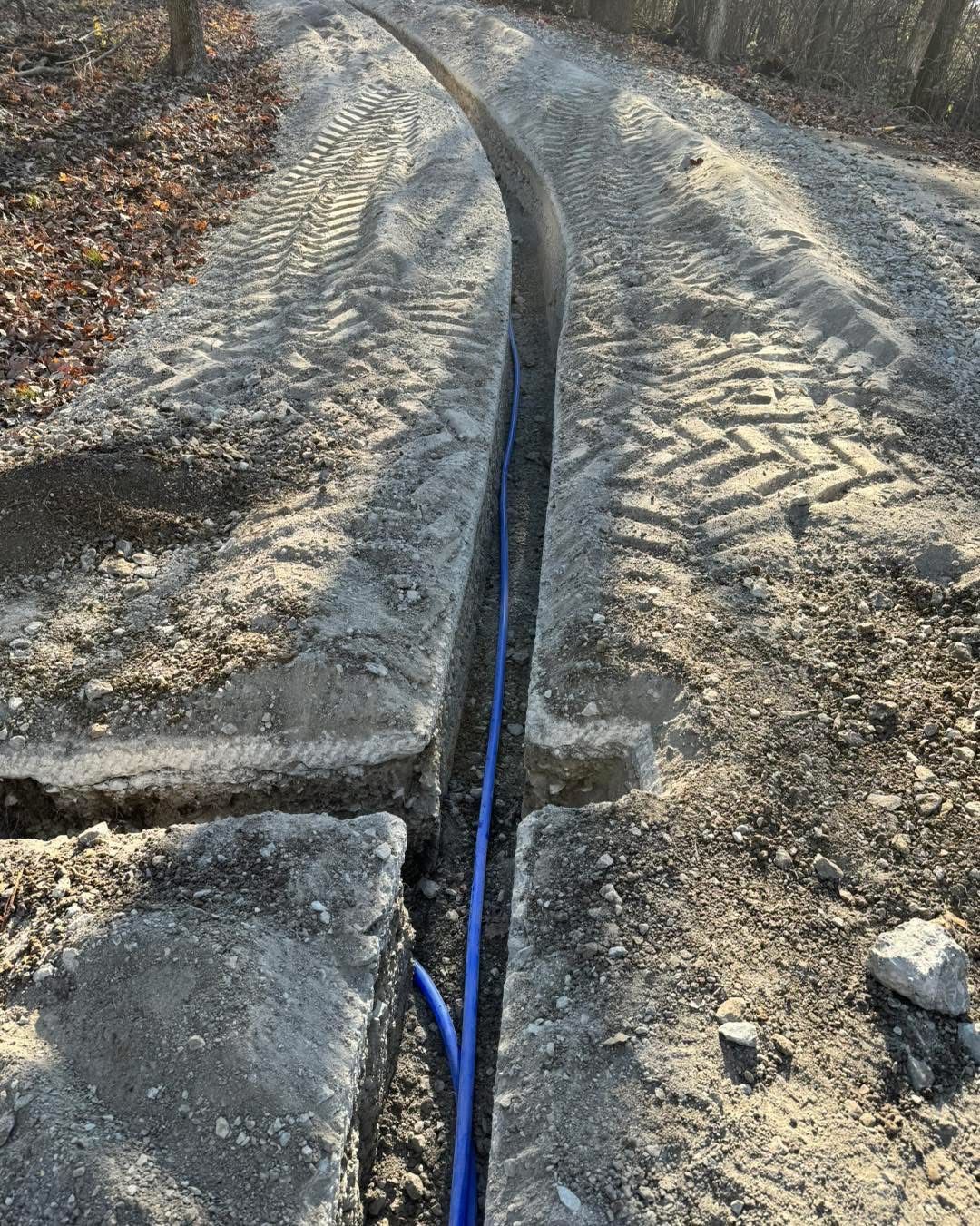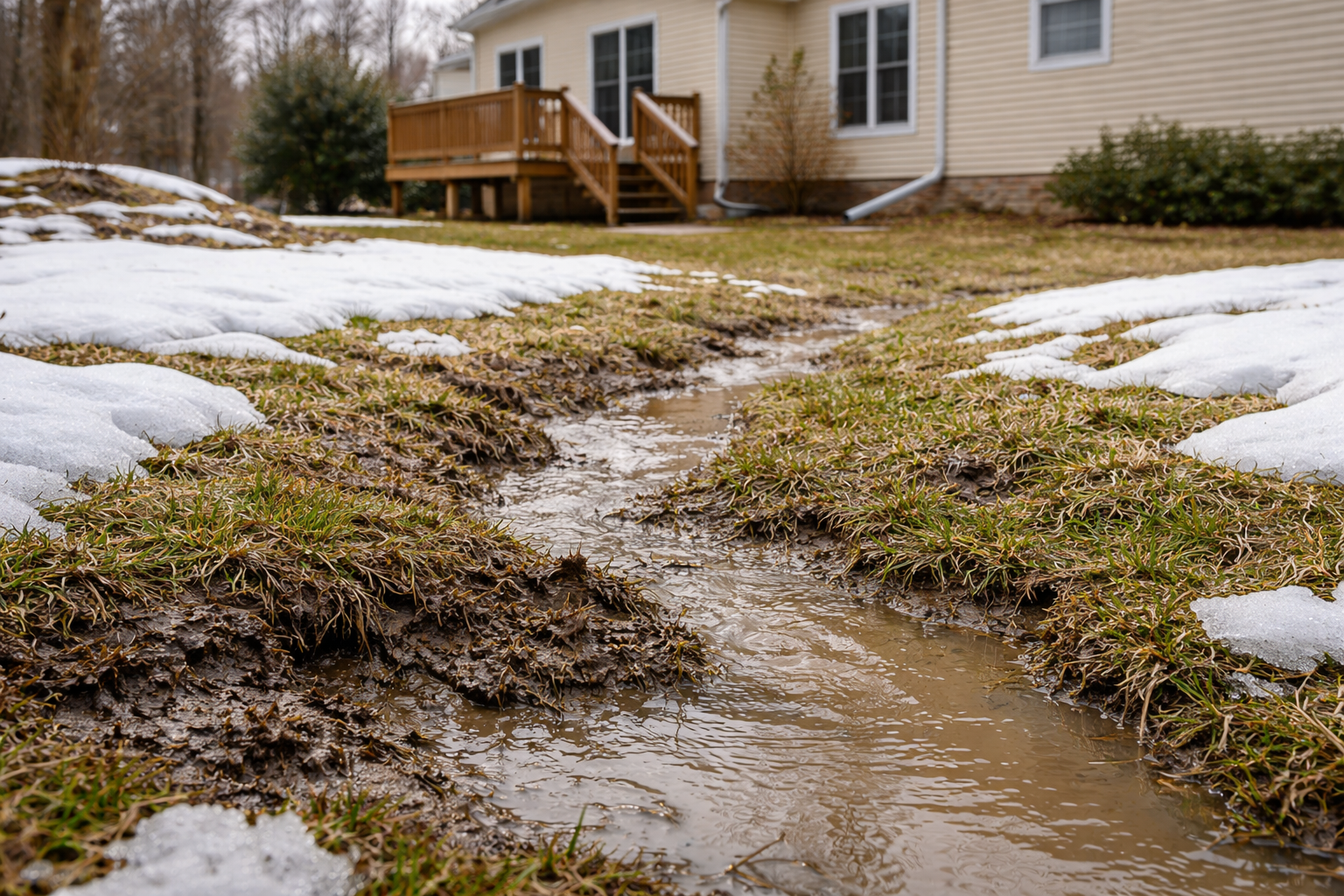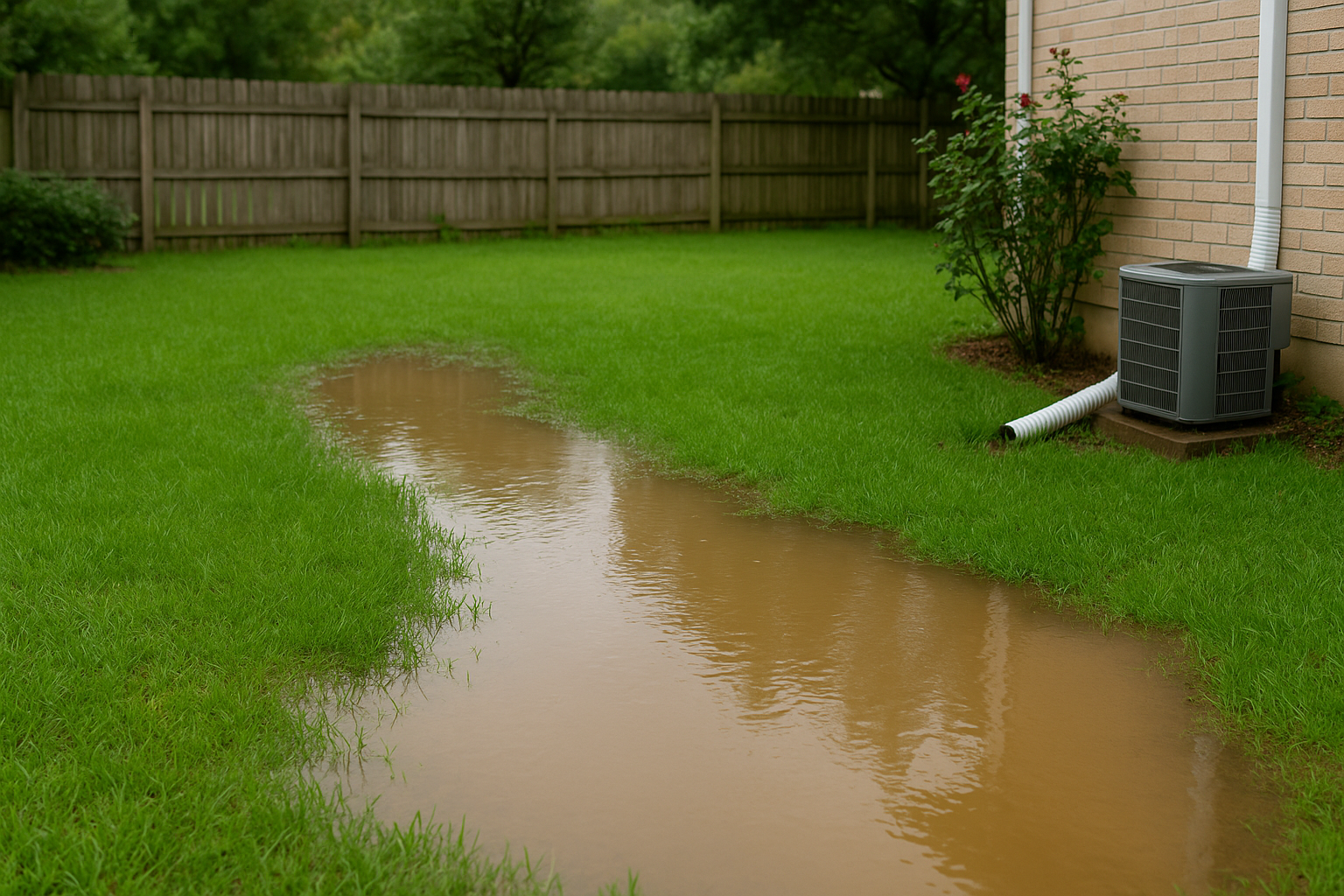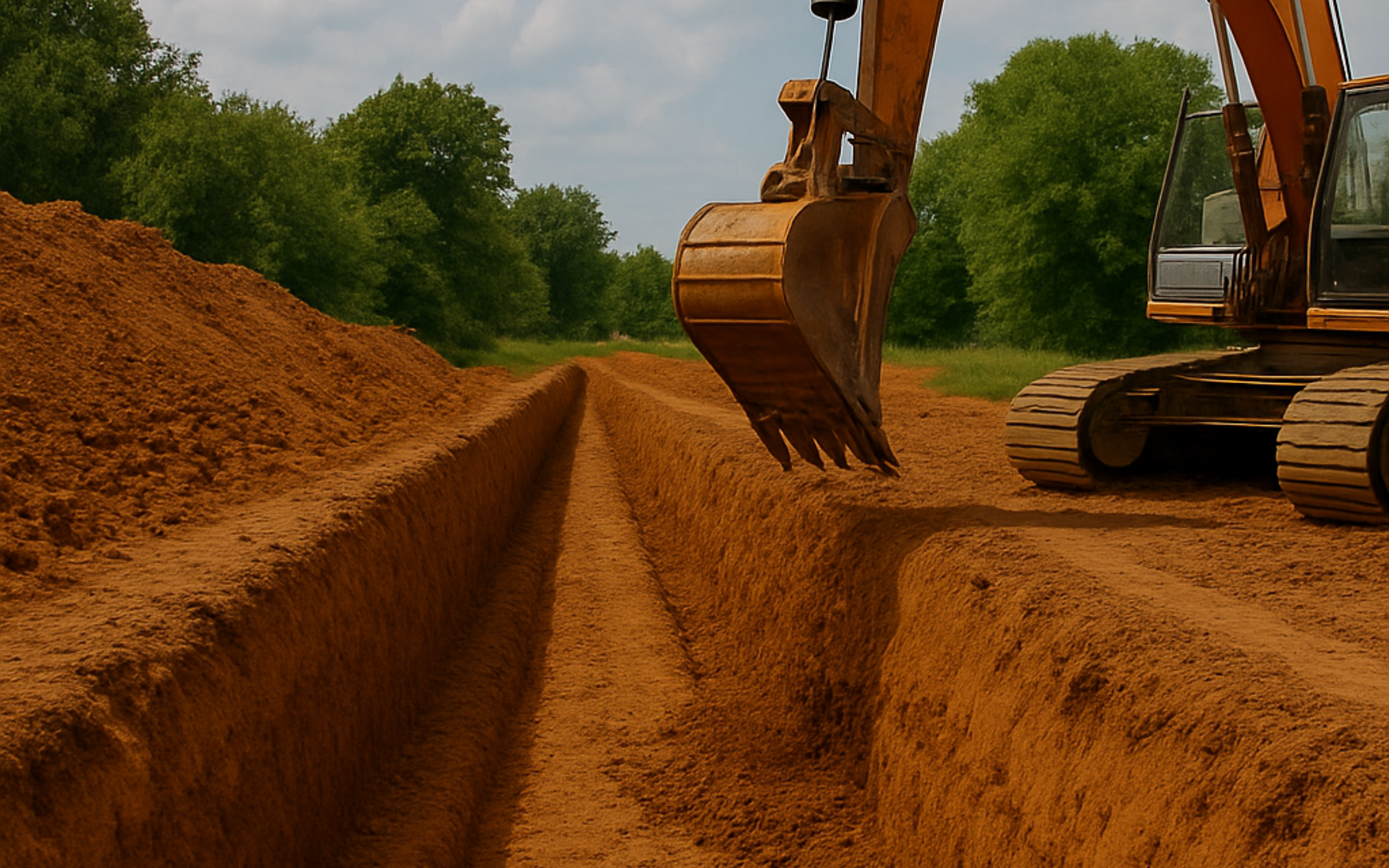When and Why Rock Trenching is Necessary
Tackling the Toughest Ground Conditions

In construction and excavation projects, not every site is made of soft, workable soil. Many areas in Middle Tennessee have hard rock layers beneath the surface that can bring projects to a halt without the right equipment and expertise. This is where rock trenching comes in.
Rock trenching is a specialized excavation method used to cut through solid rock or extremely compacted material to install utilities, foundations, or drainage systems. It requires powerful machinery, trained operators, and careful planning — but when it’s necessary, it can make all the difference between a project moving forward or stalling out.
What is Rock Trenching?
Rock trenching is the process of cutting narrow, controlled trenches through hard rock or other unyielding ground materials.
Unlike standard trenching, which uses backhoes or excavators to dig through soil, rock trenching relies on specialized tools like:
- Rock trenchers with rotating cutting drums
- Hydraulic hammers or breakers attached to excavators
- Rock wheels or saws designed to slice through stone
These machines allow contractors to create precise trenches even in extremely difficult conditions, making it possible to install underground infrastructure where traditional digging won’t work.
When Rock Trenching is Necessary
There are several situations where rock trenching becomes a must rather than an option:
1. Rocky or Bedrock Subsurface
If soil tests or initial digging reveals solid rock, large boulders, or heavily compacted layers, standard excavation equipment won’t be able to break through. Rock trenching is the only safe and effective way to reach the required depth.
2. Utility Installation Through Rock
Water lines, sewer lines, electrical conduits, and storm drains must be installed at precise depths and slopes. When their paths cross solid rock, rock trenching ensures these systems can be installed properly without rerouting.
3. Foundations and Structural Footings
For stable building foundations, footings must sit on level, uniform surfaces. If uneven rock layers are in the way, they must be cut back or removed using rock trenching equipment to prevent future settling or cracking.
4. When Blasting Isn’t an Option
In residential neighborhoods, near existing buildings, or in environmentally sensitive areas, blasting is often too risky or prohibited. Rock trenching is a safer, more controlled alternative that avoids vibrations and flying debris.
5. Cost-Effective for Long, Narrow Cuts
While rock trenching equipment is specialized, it’s often more efficient and less disruptive than blasting when long, narrow cuts are needed—especially for continuous trenches such as utility lines.
Why Rock Trenching Matters
Using proper rock trenching techniques delivers several critical benefits:
- Structural Stability – Prevents future settlement, cracks, or pipe damage by ensuring utilities and footings rest on stable ground.
- Safety – Reduces the risk of trench collapse and avoids hazards associated with blasting.
- Precision – Allows accurate control of trench width, depth, and slope, which is essential for utility performance.
- Code Compliance – Many building codes require that trenches be free of obstructions like rock to meet safety and performance standards.
- Long-Term Savings – While it adds cost upfront, it helps prevent expensive delays, rework, or utility failures later.
How West Farms and Construction Handles Rock Trenching
At West Farms and Construction, we’re experienced in tackling even the toughest terrain. When rock trenching is required, we:
- Conduct thorough site assessments to locate rock layers
- Use the right specialized machinery for the material and project scale
- Minimize vibration, noise, and disruption around nearby structures
- Follow strict safety protocols for our team and the surrounding area
- Properly backfill and compact trenches to protect your infrastructure
Our goal is always to get your project completed safely, on schedule, and built to last.
Conclusion
Rock trenching isn’t needed on every project—but when it is, it’s essential to get it done right. With the right equipment, expertise, and safety measures, rock trenching turns what could be a major obstacle into just another step toward a successful build.
If you’re planning a construction or excavation project in Middle Tennessee and suspect rock might be an issue, contact West Farms and Construction. We’ll assess your site and provide a safe, efficient solution to keep your project moving forward.





